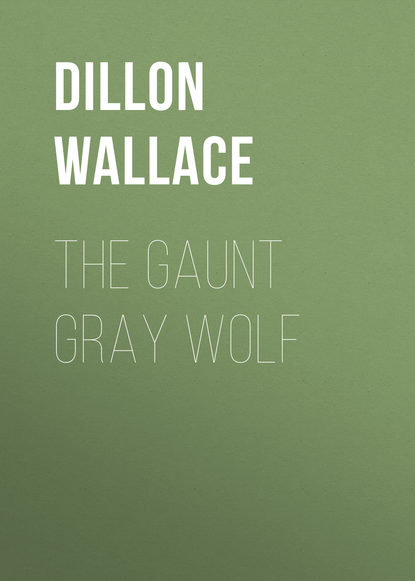По всем вопросам обращайтесь на: info@litportal.ru
(©) 2003-2024.
✖
The Gaunt Gray Wolf
Настройки чтения
Размер шрифта
Высота строк
Поля
Afternoon was waning into evening when Shad reached the point Dick had indicated, and the rising breeze was beginning to whip the wave crests here and there into white foam.
Dick Blake had advised him to camp here if the wind increased. It had increased considerably, but Shad had set his heart upon reaching Wolf Bight that night, and he did not wish to stop. The sun was setting, but there was to be a full moon, and he would be able to see nearly as well as by day. The sea, though a little rougher than it had been during the afternoon, was not, after all, he argued, so bad.
"I'll make a try for it, anyhow; I know I can make it," said he, after a little hesitation, and turning his back upon the point he paddled on.
Presently, however, he began to regret his decision. With the setting sun the wind increased perceptibly. The sea grew uncomfortably rough. Little by little the canoe began to ship water, and with every moment the situation became more perilous.
Now, genuinely alarmed, Shad made a vain attempt to turn about, in the hope that he might gain the lee of the point and effect a landing. But it was too late. He quickly found that it was quite impossible to stem the wind, and he had no choice but to continue upon his course.
With full realization of his desperate position, Shad paddled hard and paddled for his life. He was a good swimmer, but he knew well that were his canoe to capsize he could not hope to survive long in these cold waters.
The canoe was gradually filling with water, but he dared not release his paddle to bail the water out. With each big sea that bore down upon him he held his breath in fear that it would overwhelm him.
Nearer and nearer the south shore loomed in the moonlight, and with every muscle strained Shad paddled for it with all his might. If he could only keep afloat another twenty minutes!
But he had taken too desperate a chance. His goal was still a full mile away when a great wave broke over the canoe. Then came another and another in quick succession, and Shad suddenly found himself cast into the sea, struggling in the icy waters, hopelessly far from shore.
III
UNGAVA BOB MAKES A RESCUE
Twilight was settling into gloom, and the first faint stars were struggling to show themselves above the distant line of dark fir and spruce trees that marked the edge of the forest bordering Eskimo Bay. Dark cloud patches scudding across the sky, now and again obscured the face of the rising moon. A brisk northwest breeze was blowing, and though it was mid-July the air had grown chill with the setting of the sun.
Ungava Bob, alone in his boat, arose, buttoned his jacket, trimmed sail, and by force of habit stood with his left hand resting upon the tiller while he scanned the moonlit waters of the bay before resuming his seat.
He was a tall, square-shouldered, well-developed lad of seventeen, straight and lithe as an Indian, with keen, gray-blue eyes, which seemed ever alert and observant. Exposure to sun and wind had tanned his naturally fair skin a rich bronze, and his thick, dark-brown hair, with a tendency to curl up at the ends, where it fell below his cap, gave his round, full face an appearance of boyish innocence.
He was now homeward bound to Wolf Bight from the Hudson's Bay Company's post on the north shore, where he had purchased a supply of steel traps and other equipment preparatory to his next winter's campaign upon the trapping trails of the far interior wilderness; for Bob Gray, though but seventeen years of age, was already an experienced hunter and trapper.
Suddenly, as he looked over the troubled sea, a small black object rising upon the crest of a wave far to leeward caught his eye. The small black object was Shad's canoe, and one with less keen vision might have passed it unnoticed, or seeing it have supposed it belated debris cast into the bay by the rivers, for the spring floods had hardly yet fully subsided. But Bob's training as a hunter taught him to take nothing for granted, and, watching intently for its reappearance from the trough of the sea, he presently discerned in the moonlight the faint glint of a paddle.
"A canoe!" he exclaimed, as he sat down. "An' what, now, be an Injun doin' out there this time o' night? An' Injuns never crosses where this un be. I'll see, now, who it is, an' what he's up to, whatever," and, suiting the action to the resolve, he shifted his course to bear down upon the stranger.
The hunter instinctively attributes importance to every sign, sound, or action that is not in harmony with the usual routine of his world, and by actual investigation he must needs satisfy himself of its meaning. This is not idle curiosity, but an instinct born of necessity and life-long training, and it was this instinct that prompted Ungava Bob's action in turning from his direct course homeward.
"'Tis no Injun," he presently said, as with a nearer approach he observed the stroke. "'Tis too long an' slow a paddle-stroke."
This puzzled him, for he knew well every white settler of the Bay within a hundred miles of his home, and he knew, too, that only some extraordinary mission could have called one of them abroad so late in the evening, and particularly upon the course this canoe was taking at a season of the year when all were employed upon their fishing grounds.
Gradually he drew down upon the canoe, until at length he could make out its lines, and observed that it was not a birch bark, the only sort of canoe in use in the Bay by either Indians or white natives. The canoeist, too, was a stranger in the region. Of this he had no doubt, though he could not see his features.
He was well within hailing distance, though it was evident the stranger in the canoe had not yet discovered his approach, when a black cloud passed over the face of the moon, plunging the sea into darkness, and when the moon again lighted the waters canoe and canoeist had vanished as by magic.
Like a flash, realising what had happened, Bob seized a coil of rope, made one end fast to the stern of his boat, grasped the coil in his right hand, and, tense and expectant, scanned the sea for the reappearance of the unfortunate stranger.
Presently he discovered the submerged canoe directly ahead, and an instant later saw Shad rise to the surface, strike out for it, and catch and cling to the gunwale.
Bob poised himself for the effort, and as he scudded past, measuring the distance to a nicety, deftly cast the line directly across the canoe and within the reach of Shad's hand, shouting as he did so:
"Make un fast!"
Without looking for the result, he sprang forward, lowered sail, shipped the oars, pulled the boat about, and Shad, who had caught the rope, had scarcely time to thrust it under a thwart and secure it before Bob, drawing alongside, caught him by the collar of his shirt and hauled him aboard the boat. Seizing the oars again, and pulling safely free from danger of collision with the canoe, Bob hoisted sail, brought the boat before the wind, and resuming his seat astern had his first good look at his thus suddenly acquired passenger.
Shad, amidships, was engaged in drawing off his outer flannel shirt, from which he coolly proceeded to wring, as thoroughly as possible, the excess water, before donning it again.
Not a word had passed between them, and neither spoke until Shad had readjusted his shirt, when, by way of opening conversation, Bob remarked:
"You'm wet, sir."
"Naturally," admitted Shad. "I've been in the Bay, and the bay water is surprisingly wet."
"Aye," agreed Bob, "'tis that."
"And surprisingly cold."
"Aye, 'tis wonderful cold."
"And I'm profoundly grateful to you for pulling me out of it."
"'Twere fine I comes up before your canoe founders, or I'm thinkin' you'd be handy t' drownded by now."
"A sombre thought, but I guess you're right. A fellow couldn't swim far or stick it out long in there," said Shad, waving his arm toward the dark waters. "I'm sure I owe my life to you. It was lucky for me you saw me."
"'Tweren't luck, sir; 'twere Providence. 'Twere th' Lord's way o' takin' care o' you."
"Well, it was a pretty good way, anyhow. But where did you drop from? I didn't see you till you threw me that line a few minutes ago."
"I were passin' t' wind'ard, sir, when I sights you, an' not knowin' who 'twere, I sails close in till I makes you out as a stranger, an' then you goes down an' I picks you up."
"That sounds very simple, but it was a good stunt, just the same, to get me the line and come around in this chop the way you did, and then haul me aboard before I knew what you were about–you kept your head beautifully, and knew what to do–and you only a kid, too!" added Shad, in surprise, as the moonlight fell full on Bob's face.
"A–kid?" asked Bob, not quite certain what "kid" might be.
"Yes–just a youngster–a boy."
"I'm seventeen," Bob asserted, in a tone which resented the imputation of extreme youth. "You don't look much older'n that yourself."
"But I am–much older–I'm eighteen," said Shad, grinning. "My name's Trowbridge–Shad Trowbridge, from Boston. What is your name? Let's get acquainted," and Shad extended his hand.
"I'm Bob Gray, o' Wolf Bight," said Bob, taking Shad's hand.
"Not Ungava Bob?" exclaimed Shad.
"Aye, they calls me Ungava Bob here-abouts sometimes."
"Why, I was on my way to Wolf Bight to see you!"
"T' see me, sir?"








